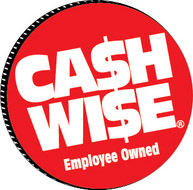
Registered Dietitian Tips for Shopping the Frozen Foods Aisles

Macey – RDN, LD
Happy month of March! Did you know that March is National Frozen Foods Month? Your Registered Dietitian is here to chat all things frozen foods and how they can be incorporated into a balanced diet.
A common myth prevails that frozen foods are unhealthy. When in fact, there are an abundance of healthful options to be found in the frozen food aisles of grocery stores. The key is knowing what to look for to spot the better-for-you options among all the offerings. Let’s dive into some dietitian-approved tips for shopping the frozen food aisles!
Fruits and vegetables
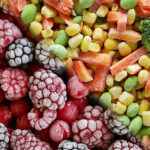 Aren’t fresh fruits and vegetables healthier than frozen? A common question among shoppers. And the answer is NO. Fruits and vegetables picked for freezing are selected when they are at peak ripeness and are frozen almost immediately afterwards. The freezing process they undergo locks in the nutrients, making the product just as nutritious as if you were to eat it fresh. In fact, there are times when purchasing frozen can be more nutritionally optimal due to the nutrients being retained during freezing whereas fresh fruits and vegetables may lose some of those nutrients over time.
Aren’t fresh fruits and vegetables healthier than frozen? A common question among shoppers. And the answer is NO. Fruits and vegetables picked for freezing are selected when they are at peak ripeness and are frozen almost immediately afterwards. The freezing process they undergo locks in the nutrients, making the product just as nutritious as if you were to eat it fresh. In fact, there are times when purchasing frozen can be more nutritionally optimal due to the nutrients being retained during freezing whereas fresh fruits and vegetables may lose some of those nutrients over time.
When shopping for frozen fruits and vegetables, take a look at the nutrition label. For vegetables, look for options that have no added salt, sugar, or sauces in the ingredient list. For fruits, look for unsweetened varieties.
Frozen meals
 Sometimes convenience is key, and frozen entrees whip up in a flash. Plus, they can be stored for longer periods of time. When shopping for frozen meals, look for options that are loaded with vegetables and include a lean protein source. For entrees that include a grain, consider choosing varieties that include whole grains. For options that don’t have a grain, consider adding your own such as brown rice, whole wheat pasta or quinoa. Don’t forget, you can always elevate your frozen entrees with your own veggies too! Adding vegetables to frozen pizzas and frozen pasta dishes like mac n cheese is a great way to add a nutritional punch while keeping the convenience! Finally, sodium is another component to pay attention to, as many frozen entrees can have quite a bit of added sodium. Look for options that have less than 600 mg per serving.
Sometimes convenience is key, and frozen entrees whip up in a flash. Plus, they can be stored for longer periods of time. When shopping for frozen meals, look for options that are loaded with vegetables and include a lean protein source. For entrees that include a grain, consider choosing varieties that include whole grains. For options that don’t have a grain, consider adding your own such as brown rice, whole wheat pasta or quinoa. Don’t forget, you can always elevate your frozen entrees with your own veggies too! Adding vegetables to frozen pizzas and frozen pasta dishes like mac n cheese is a great way to add a nutritional punch while keeping the convenience! Finally, sodium is another component to pay attention to, as many frozen entrees can have quite a bit of added sodium. Look for options that have less than 600 mg per serving.
Dietitians’ Choice
Our Dietitian’s Choice shelf tag program is in place to help you shop for the better-for-you options in our stores. In the frozen food aisles, as throughout our whole store, you can simply look for the blue shelf tag to find the options our Dietitian Team have tagged as better-for-you choices!
Happy Shopping!
Macey Hurrle, Registered Dietitian
RDN, LD
Have more questions about shopping for frozen foods or other nutrition-related questions?
 Don’t miss out! Catch up on all the latest blogs from our Dietitian Team.
Don’t miss out! Catch up on all the latest blogs from our Dietitian Team.

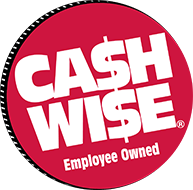


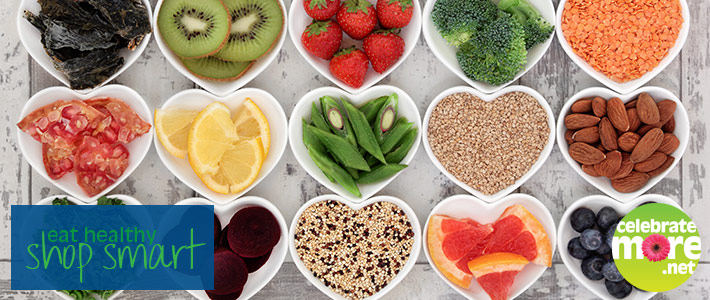 Foods To Support A Healthy Immune System
Foods To Support A Healthy Immune System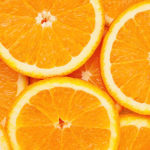 his vitamin throughout your day.
his vitamin throughout your day.
 rich in orange color contain carotenoids, which our body then turns into Vitamin A when we eat them. These, too, are antioxidants to give your immune system the boost it needs.
rich in orange color contain carotenoids, which our body then turns into Vitamin A when we eat them. These, too, are antioxidants to give your immune system the boost it needs.


